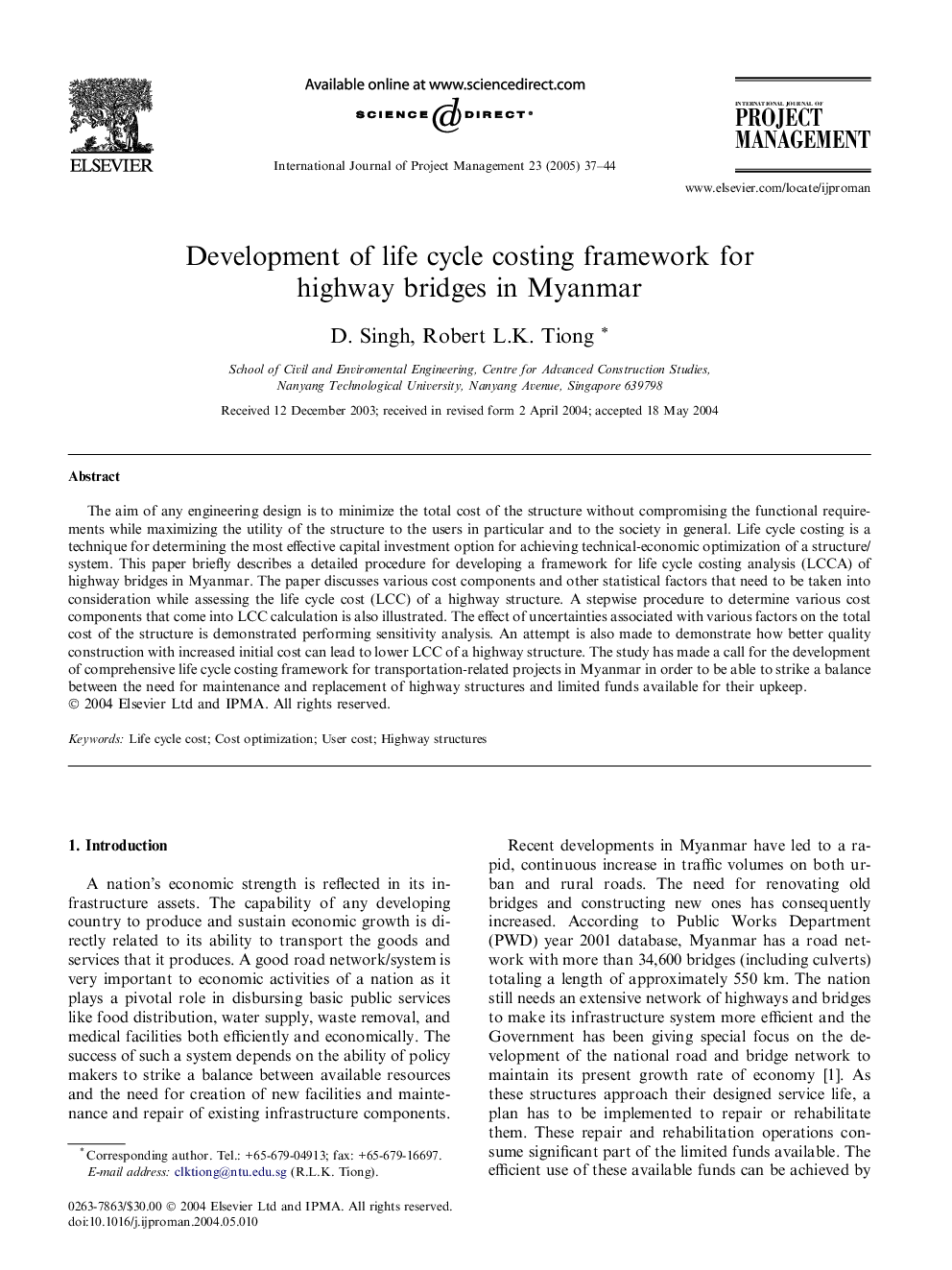| Article ID | Journal | Published Year | Pages | File Type |
|---|---|---|---|---|
| 9639310 | International Journal of Project Management | 2005 | 8 Pages |
Abstract
The aim of any engineering design is to minimize the total cost of the structure without compromising the functional requirements while maximizing the utility of the structure to the users in particular and to the society in general. Life cycle costing is a technique for determining the most effective capital investment option for achieving technical-economic optimization of a structure/system. This paper briefly describes a detailed procedure for developing a framework for life cycle costing analysis (LCCA) of highway bridges in Myanmar. The paper discusses various cost components and other statistical factors that need to be taken into consideration while assessing the life cycle cost (LCC) of a highway structure. A stepwise procedure to determine various cost components that come into LCC calculation is also illustrated. The effect of uncertainties associated with various factors on the total cost of the structure is demonstrated performing sensitivity analysis. An attempt is also made to demonstrate how better quality construction with increased initial cost can lead to lower LCC of a highway structure. The study has made a call for the development of comprehensive life cycle costing framework for transportation-related projects in Myanmar in order to be able to strike a balance between the need for maintenance and replacement of highway structures and limited funds available for their upkeep.
Related Topics
Physical Sciences and Engineering
Engineering
Civil and Structural Engineering
Authors
D. Singh, Robert L.K. Tiong,
